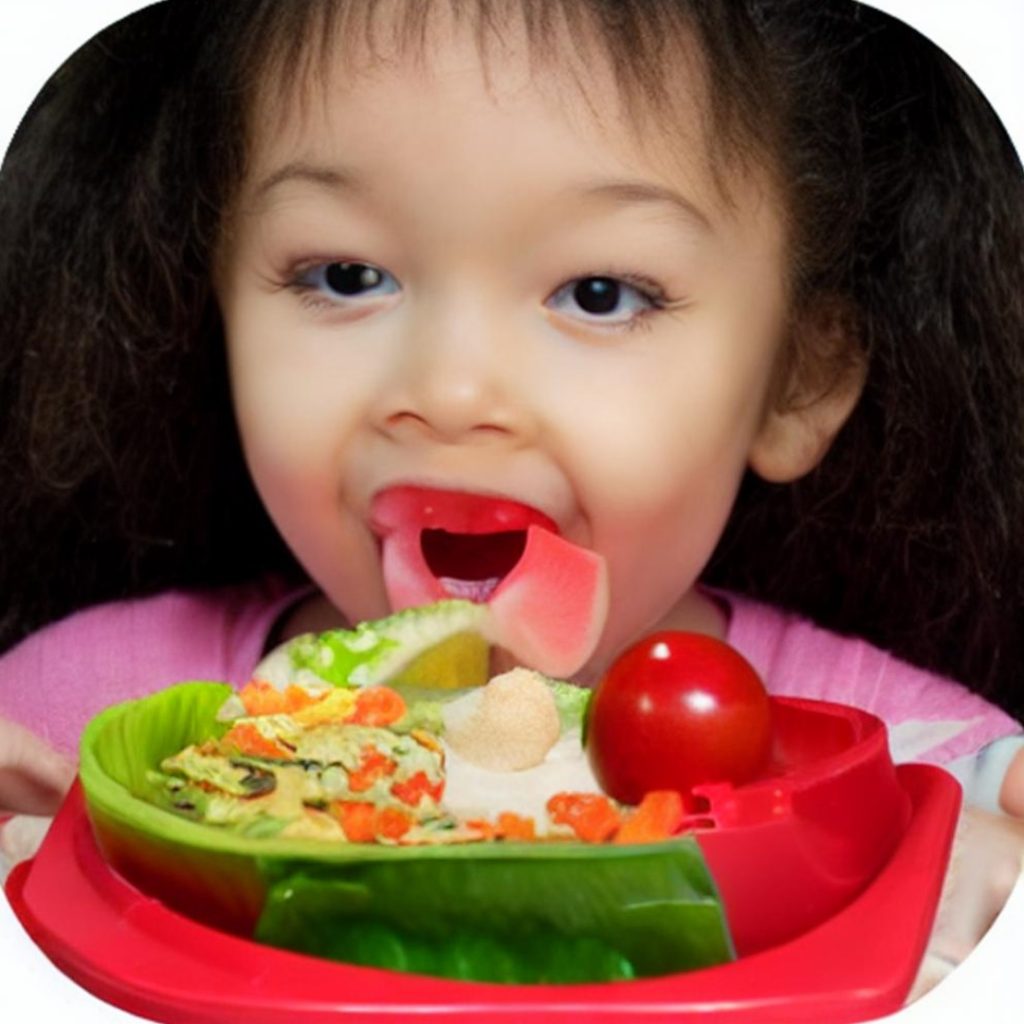11 Nutrients To Include In Easy Child Meal Plans
A healthy meal plan is essential for child because it provides the necessary nutrients for growth and development, helps to prevent illness and disease, and supports overall well-being.
Children require a balanced diet that includes a variety of fruits, vegetables, whole grains, lean protein, and low-fat dairy products to ensure that they are getting the vitamins, minerals, and nutrients they need. Additionally, teaching children about healthy eating habits at a young age can help them establish lifelong habits that will support their health and well-being.
How To Make A Healthy Meal Plan For Your Child?

One thing that is true about all kids is they are picky eaters. Or it will be more appropriate to say that children are choosey about their food. As a responsible parent, you need to respect their food choice and make sure that they get all essential nutrients. Also, you need to keep things simple so you don’t have any hassle in planning meals for your kid.
First, you should know about healthy food so you can plan healthy meals for your kid. Children also need healthy food but they choose food according to taste. Your knowledge of food could help plan meals that are both healthy and delicious.
What Is A Healthy Meal For Child?

A healthy meal is a food that contains all essential nutrients. Kids must get all nutrients so they reach development milestones on time. But you should also make sure that they like the food. In other words, you need to choose healthy items from their choice of food.
Eating healthy will help in many ways. First, it will help achieve milestones. Second, it will help control their appetite and prevent kids from overeating or skipping their meals. It will be a balanced diet that will prevent kids from many problems like nutritional deficiency and obesity.
Why Kids Are Always Hungry?
Kids can’t suppress hunger pangs. Also, growing kids feel hungry every hour. But it doesn’t mean that you should allow your child to munch on everything they find tasty. Here you need to be choosey. You need to serve them foods that keep them full for a long time.
Another important consideration with kids is the timing of food. You can fix eating time for your child so they don’t feel hungry all time. They will know when to eat, what to eat, and how much to eat. They will develop healthy food habits that will provide them with nutrition, suppress hunger pangs, and pamper their taste buds as well.
What Are Important Nutrients For Kids?

The first thing you should know about healthy food is the important nutrients for kids. Once you know the nutrition children need, you will be able to plan healthy meals for your child.
Here I will discuss all important nutrients and their benefits for kids so you have a better understanding of the nutritional demand of your child. You will agree that eating one type of food could make your child deficient in some nutrients. With a healthy meal, your objective should be to help your child get all nutrients in the right amount.
Protein: Protein is essential for growth and development, supporting the building of muscles, bones, and tissues. Sources like meat, fish, beans, and dairy provide necessary nutrients.
Carbohydrates: Carbohydrates are an important source of energy for kids, helping fuel physical activity and brain function. Good sources include whole grains, fruits, and vegetables.
Healthy Fats: Healthy fats are essential for growth and development, helping with brain function, hormone production, and absorption of vitamins. Sources include nuts, seeds, avocados, and fatty fish.
Calcium: Calcium is vital for strong bones and teeth, and also plays a role in muscle and nerve function. Dairy products like milk and cheese are excellent sources, as well as leafy greens and fortified foods.
Iron: Iron is important for healthy growth and development, as it helps make red blood cells carry oxygen throughout the body. Good sources include meat, beans, fortified cereals, and leafy greens. Vitamin C helps with iron absorption.
Folate: Folate is essential for growth and development, helping with the production of new cells. Good sources include leafy greens, beans, and fortified cereals.
Fiber: Fiber is important for digestive health, helping to prevent constipation and maintain a healthy weight. Good sources include whole grains, fruits, vegetables, and beans. Encourage kids to drink plenty of water to help fiber move through their digestive system.
Vitamin A: Vitamin A is important for vision, immune function, and healthy skin. Good sources include orange and yellow fruits and vegetables, leafy greens, and dairy products. Avoid giving children too much vitamin A from supplements, as it can be toxic in high amounts.
Vitamin C: Vitamin C is important for immune function, wound healing, and iron absorption. Good sources include citrus fruits, strawberries, kiwi, and vegetables like bell peppers and broccoli. Encourage kids to eat a variety of colorful fruits and vegetables to get the most vitamin C.
Vitamin D: Vitamin D is important for bone health and immune function. Our body produces it when exposed to sunlight, but good dietary sources include fortified dairy products, fatty fish, and egg yolks. Some children may need a supplement if they don’t get enough food or sunlight.
Potassium: Potassium is important for heart, muscle, and nerve function. Good sources include bananas, sweet potatoes, yogurt, and spinach. Encourage kids to eat a variety of fruits and vegetables to get enough potassium, and limit high-sodium processed foods that can cause the body to lose potassium.
These are important nutrients for kids and any meal plan for kids must include all these nutrients. You can choose food items that contain all essential nutrients. According to nutrition experts, you should focus more on fruits because fruits are easier to consume and digest.
Conclusion
As a caring and responsible parent, you need to help your child in choosing the right foot. And it is possible only when you know what makes healthy food for children. When you know food, you can help your child develop healthy food habits.


